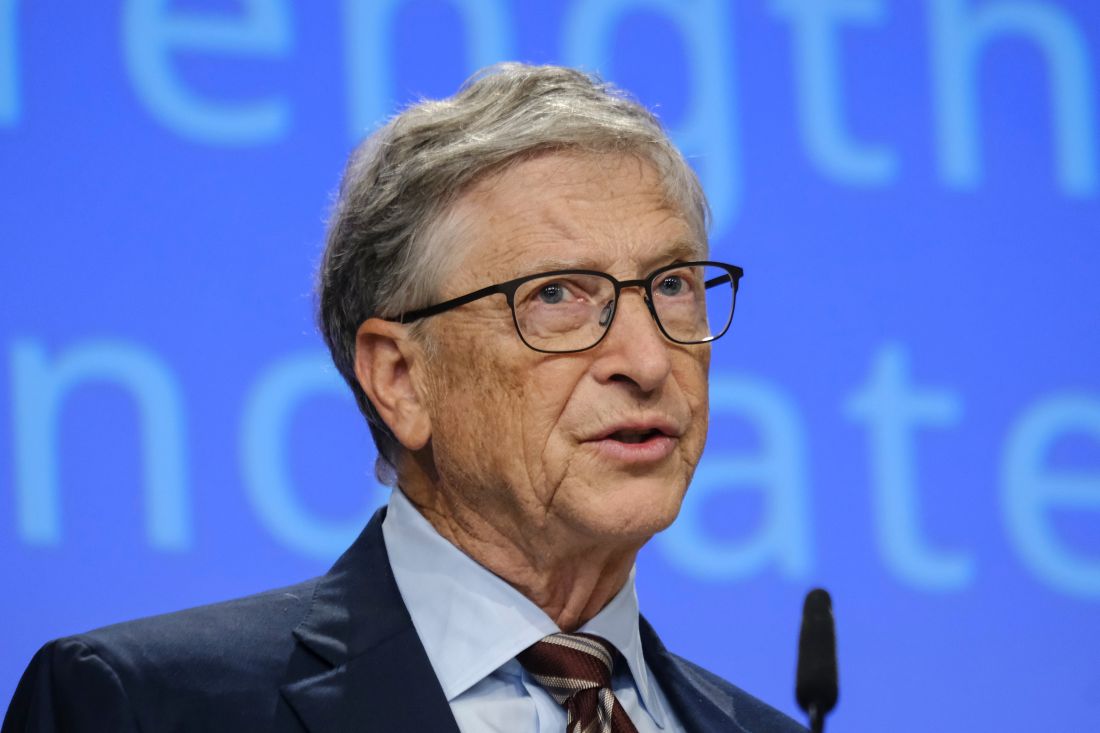When you think of the most successful entrepreneurs of all time, names like Bill Gates, Steve Jobs and Oprah Winfrey probably come to mind—and for good reason. These are the visionaries who didn’t just build companies; they changed how we live, work and connect with the world.
What sets them apart isn’t just fame or fortune. It’s their ability to see possibilities others missed, take bold risks and leave behind a legacy that reshaped entire industries. Whether it was revolutionizing software, reimagining consumer technology, or building a media empire from the ground up, these entrepreneurs shared one thing in common: the courage to create something the world had never seen before.
In this article, we’ll explore the stories and lessons of history’s most impactful entrepreneurs—and what made their success so enduring.
Did you know Bill Gates meditates to “clear his head and reset”? Download our FREE mindfulness e-book to learn how mindfulness can help you do the same.
Visionaries Who Changed the Game: The Most Famous Entrepreneurs in History
More than company founders, these famous entrepreneurs became industry architects who tore up existing blueprints and sketched entirely new possibilities. They didn’t just spot gaps in markets—they imagined new territories where none existed. What set them apart wasn’t just momentary brilliance or lucky timing.
Still, their capacity to plant ideas whose roots grew so deep and branches spread so wide permanently altered our commercial landscape. History remembers them as successful business owners and pivotal characters who redirected the flow of human commerce and creation.
- Benjamin Franklin—A Founding Father and prolific inventor, Franklin laid the groundwork for American innovation and civic entrepreneurship.
- Henry Ford—Revolutionized manufacturing and transportation by using the modern assembly line.
- John D. Rockefeller—Founded Standard Oil and influenced the modern corporation and philanthropy.
- Andrew Carnegie—Built a steel empire and later became one of history’s most generous philanthropists.
- Thomas Edison—Perfected the incandescent light bulb, invented the phonograph and transformed daily life through applied science and business.
- Steve Jobs—Co-founded Apple and redefined technology, design and user experience in the digital age.
- Walt Disney—Created the first global animation and entertainment empire centered on imagination and storytelling.
- George Eastman—Made photography accessible to the public with the Kodak camera.
- Madam C.J. Walker—Built a beauty empire and became one of America’s first self-made Black female millionaires.
- J.P. Morgan—Dominated American finance and helped stabilize markets during times of crisis.
- P.T. Barnum—Master showman who pioneered modern entertainment and marketing.
- Ray Kroc—Scaled McDonald’s into the world’s most recognizable fast-food franchise.
- Jeff Bezos—Built Amazon from an online bookstore into a global retail and logistics powerhouse.
- Larry Page—Co-founded Google and helped organize the world’s information.
- Sergey Brin—Google co-founder who helped shape the internet age through search innovation and data science.
Learn to say no and prioritize what really matters, just like Steve Jobs, by downloading our FREE mindfulness e-book.
Empire Builders: Well-Known Entrepreneurs Who Scaled Global Brands
Masters of expansion, these business minds cracked the elusive code of growth without collapse. They navigated the treacherous waters between “too small to matter” and “too big to manage” with remarkable skill. Behind their household-name companies lie untold stories of supply chain wizardry, customer psychology insights and organizational innovations seldom celebrated in headlines.
While visionaries dream, these builders delivered, transforming promising concepts into commercial giants that weathered decades of market storms, technological upheavals and changing consumer tastes. The legacy of these popular entrepreneurs lives in organizational structures and business practices so fundamental that we’ve forgotten they were once revolutionary inventions.
- Sam Walton—Turned a small discount store into Walmart, the largest retailer in the world.
- Phil Knight—Co-founded Nike and built a global brand around athletic performance and lifestyle.
- Frederick W. Smith—Revolutionized package delivery and logistics by founding FedEx.
- J.W. Marriott Jr.—Transformed a family-run business into an international hospitality empire.
- Conrad Hilton—Created one of the first global hotel chains, shaping the hospitality industry.
- Ross Perot—Built EDS and later ran for president, blending business savvy with public influence.
- Charles Schwab—Disrupted Wall Street by introducing discount brokerage services to everyday investors.
- Richard Sears—Revolutionized retail through mail-order catalogs that brought goods to rural America.
- Alvah Roebuck—Co-founded Sears, Roebuck & Co., helping democratize consumer access.
- Aaron Montgomery Ward—Pioneered the mail-order business model for remote shopping.
- Michael Dell—Built Dell Technologies by selling custom PCs directly to consumers.
- Steve Case—Scaled AOL into a household name, internet pioneer during the 1990s.
Related Reading: The 7 Best Documentaries About Business That Every Entrepreneur Must Watch – Explore the real-world stories behind groundbreaking innovators and the lessons driving their success.
Creative Forces and Cultural Influencers: Popular Entrepreneurs in Media and Design
The commercial canvas became their chosen medium, blending profit motives with artistic impulses in ways that transformed how we live, what we desire and how we see ourselves. Unlike purely numbers-driven counterparts, these boundary-crossers understood that spreadsheets alone don’t capture human imagination. Their companies didn’t just sell products—they bottled dreams, packaged narratives and marketed new ways of being.
By stubbornly refusing to separate creative expression from business strategy, they built enterprises that doubled as cultural movements. Decades later, their fingerprints remain visible on balance sheets and in our shared aesthetic sensibilities and cultural reference points.
- Oprah Winfrey—Media mogul who became a cultural icon through her brand of empowerment and authenticity.
- Martha Stewart—Built a lifestyle empire spanning publishing, television and home goods.
- George Lucas—Creator of Star Wars, he revolutionized film, merchandising and special effects.
- Ralph Lauren—Defined American luxury fashion through timeless designs and branding.
- Berry Gordy—Founded Motown Records and brought Black music into the mainstream.
- Louis B. Mayer—Co-founded MGM and helped establish the Hollywood studio system.
- Levi Strauss—Created the first denim jeans, shaping American workwear and fashion.
- David Sarnoff—Helped pioneer radio and television broadcasting as a mass medium.
- Robert L. Johnson—Founded BET and became the first African American billionaire.
- Estée Lauder—Built a global beauty empire through personal salesmanship and product innovation.
Did you know Oprah Winfrey credits mindfulness for her clarity and creativity? Download our FREE mindfulness e-book to discover how it can fuel your success too!
Purpose-Driven Founders: Successful Entrepreneurs Making an Impact
For these pioneers, ledgers and social conscience found rare harmony. When conventional wisdom insisted that profit and purpose stood at odds, they stubbornly charted middle paths. Their boardrooms echoed with questions typically reserved for activist circles or policy debates—how might commerce heal historical wounds? Could markets solve environmental crises? These founders rejected the notion that doing good required sacrificing financial viability.
Instead, they wove social impact directly into their business DNA, proving that addressing community needs and tackling systemic challenges could drive sustainable growth rather than hinder it. Their companies stand as living rebuttals to the false choice between prosperity and progress.
- Yvon Chouinard—Founder of Patagonia who embedded environmental and social responsibility into every aspect of the business.
- Amadeo P. Giannini—Founded Bank of America to serve immigrants and working-class families.
- Muhammad Yunus—Founded Grameen Bank to pioneer microfinance to lift millions above the poverty line and is a Nobel Peace Prize laureate for his work in social entrepreneurship.
- Pierre Omidyar—Founded eBay and now focuses on global social impact through the Omidyar Network.
- W.K. Kellogg—Promoted wellness and education while innovating in food production.
- Milton Hershey—Built a chocolate empire and funded schools and communities for his workers.
- Sara Blakely—Founder of Spanx and philanthropist who now funds scholarships for female entrepreneurs.
Modern Icons Still Shaping the Future of Entrepreneurship
Today’s commercial vanguard continues writing chapters in this ongoing story, their ventures simultaneously reflecting our moment and sculpting what comes next. Unlike historical figures viewed through the clarifying lens of time, these entrepreneurs operate amid the messy, unfolding present.
They navigate unprecedented technological capabilities alongside heightened public scrutiny, their business choices routinely triggering debates about privacy, information access, wealth concentration and the very nature of work itself.
- Bill Gates—Co-founded Microsoft and now leads global philanthropic efforts through the Gates Foundation.
- Melanie Perkins—Co-founder and CEO of Canva who democratized graphic design.
- Whitney Wolfe Herd—Founder of Bumble who redefined dating apps with a women-first approach.
- Brian Chesky—Co-founder of Airbnb, which disrupted the hospitality industry and continues to shape the future of travel.
- Tobi Lütke—Co-founder of Shopify who empowered millions of entrepreneurs by simplifying e-commerce.
- Anne Wojcicki—Co-founder of 23andMe who pioneered consumer genetics and pushed the boundaries of personalized health insights.
Related Reading: The Solo Entrepreneur Boom: Why Americans Are Embracing Independence in Record Numbers – See how today’s one-person businesses are reshaping what it means to be an entrepreneur.
Lessons From the Most Famous Entrepreneurs of All Time
From Franklin’s civic innovations to Jobs’ design revolution and Walker’s groundbreaking beauty empire to Bezos’ e-commerce transformation, the entrepreneurs profiled in this article reveal that there is no single formula for extraordinary achievement.
These visionaries taught us to see beyond present limitations. Ford didn’t just build cars; he reimagined manufacturing itself. Edison didn’t merely invent products; he created systems that brought innovation to scale.
The empire builders demonstrated the power of operational excellence and strategic thinking. Walton’s relentless focus on efficiency, Knight’s marketing genius and Smith’s logistics innovations show how execution ultimately determines whether a good idea becomes a world-changing reality.
The creative forces and cultural influencers revealed how businesses can shape society beyond balance sheets. Stewart’s homemaking empire, Winfrey’s media revolution and Gordy’s musical legacy prove that entrepreneurship can be as much about cultural expression as commercial success.
The purpose-driven founders illustrated how profit and purpose can work in harmony. From Herd’s women-first approach to Gates’ current philanthropic work, these entrepreneurs remind us that business can be a powerful vehicle for addressing society’s most significant challenges.
Across all these stories, several throughlines emerge:
- Vision paired with tenacity: These entrepreneurs may have faced moments when giving up seemed rational, yet persistence in the face of skepticism ultimately defined their journey.
- Adaptability in changing times: The most enduring legacies came from those who could evolve their visions as technologies, markets and societies transformed.
- Systems thinking: Rather than creating isolated products or services, the most influential entrepreneurs built ecosystems and platforms that enabled broader change.
- Personal authenticity: From Stewart’s perfectionism to Jobs’ obsession with design, the greatest entrepreneurs infused their ventures with their unique perspectives and values.
Create Your Own Legacy
As you reflect on these extraordinary journeys, consider your path. Entrepreneurship isn’t merely about wealth accumulation—it’s about meaningful impact, seeing possibilities others miss and having the courage to bring those possibilities to life.
What problems do you notice that others ignore? What experiences have you had that give you unique insight? What values will you refuse to compromise, even when scaling requires difficult choices?
The entrepreneurs who shape history don’t simply follow established playbooks—they write new ones. Your entrepreneurial legacy awaits not in imitation, but in the distinct contribution you can make. What will your legacy be?
Photo courtesy of Alexandros Michailidis/Shutterstock







